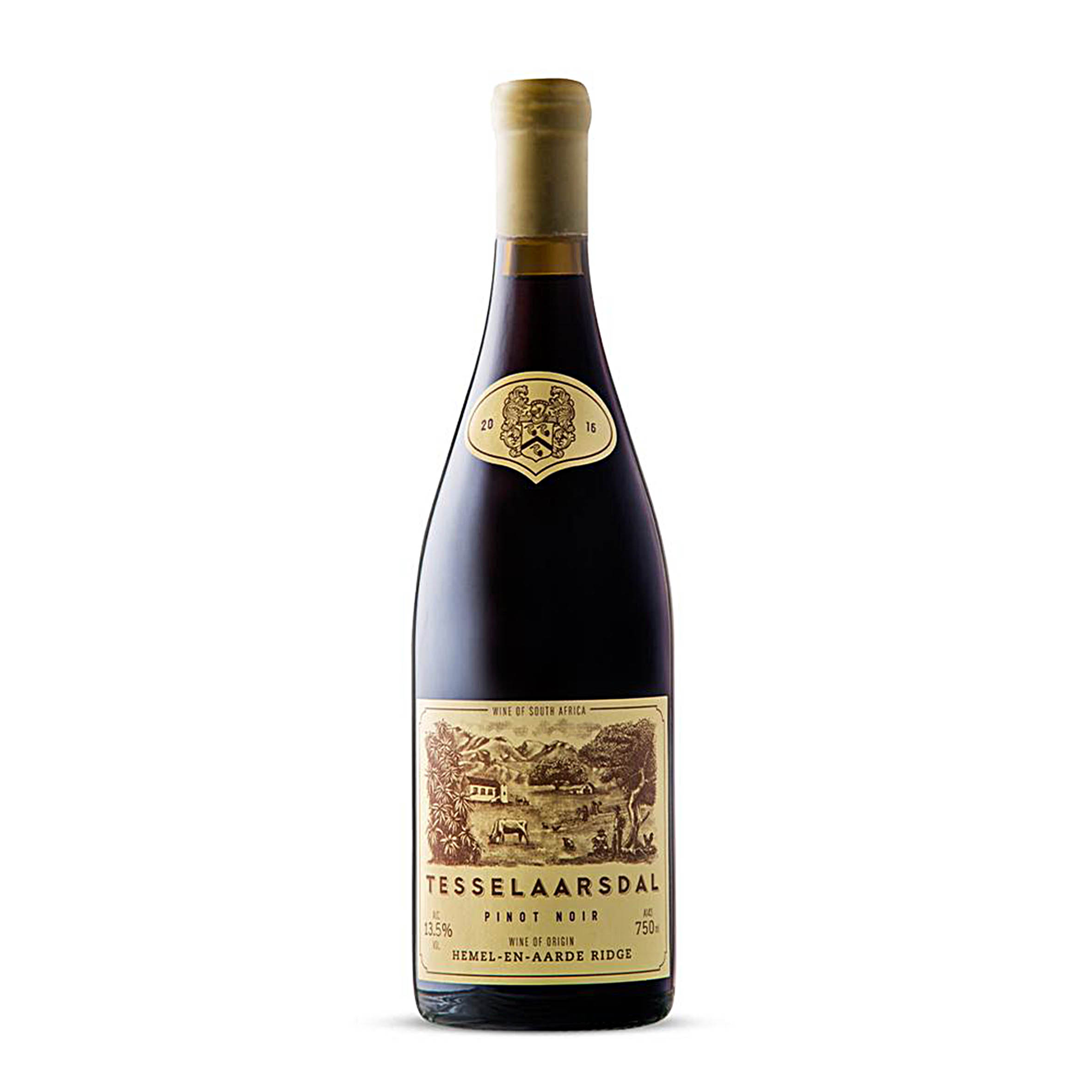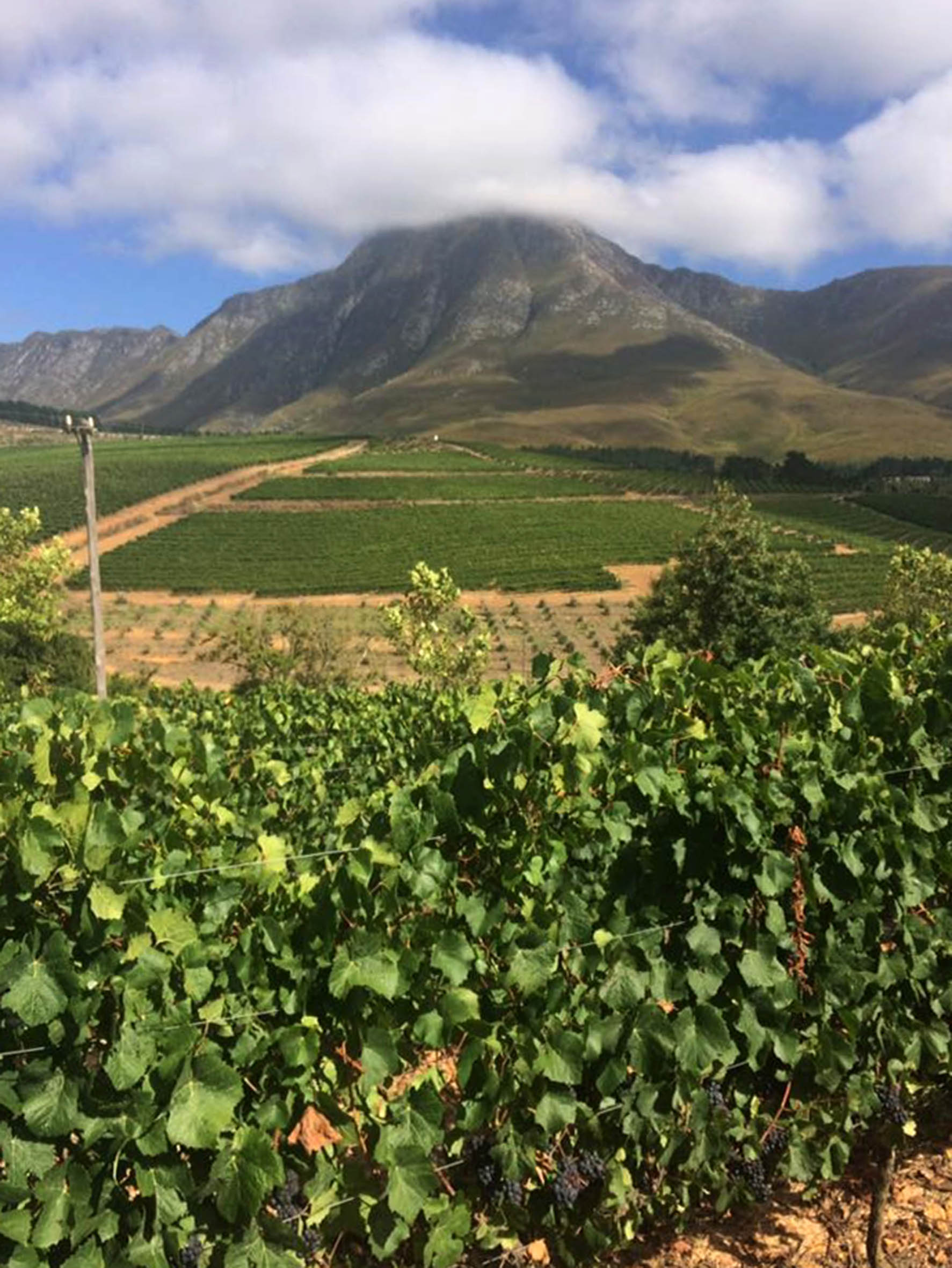Against all odds: Berene Sauls initially struggled to discern the flavours in wine but has developed a fine palate. Photos: Supplied
‘I came from a beer-drinking community, with no knowledge of wine,” says Berene Sauls, wine producer and owner of Tesselaarsdal. Sauls, whose highly acclaimed maiden vintage has earned her the title of next South African pinot noir icon, had barely tasted a drop of vino before working at a vineyard.
At 18, straight after matriculating from a school in Caledon, Sauls went to work for esteemed winemaker Anthony Hamilton Russell. She was hired as an au pair but was fired just one month later. Sauls explains: “I was very militaristic with the kids so Anthony sent me to the office to help out there.”
Working in the office sparked Sauls’s interest in wine and the delicate process involved in its production. She wondered why people pay such exorbitant prices for a bottle of wine, and what all the strange French names meant. Her curiosity and eagerness to learn did not go unnoticed. She started working in the tasting room and at wine shows and initiated her wine education at the Cape Wine Academy.
“I fell in love with pinot noir. I thought it was a nice, elegant, drinkable wine, with not too much tannin,” says Sauls. “I struggled with wine tasting for the first eight months. I used to go to Spar and actually smell the fruits that the people around me said they taste in the wine. It was very difficult for me. But towards the end of the year when I started tasting more, the palate got there.”
In 2002, she started operating the forklift, the labelling machine and the bottling machine. In fact, she was the first woman on the estate to get a forklift licence. She also got involved in the export and logistical side of the business.
Sauls immersed herself in wine culture to get a 360° view of the business. In just one year, she bloomed from a failed au pair into playing an integral role in wine production in one of South Africa’s most prominent vineyards.
In 2014, Hamilton Russell offered to help Sauls to establish her very own label. Beyond the cellar space and marketing guidance, Hamilton Russell gave her invaluable mentorship and support, with the reminder: “This will be a legacy that you leave for your sons.”

With the help of winemaker Hamilton Russell, she started her own label, Tesselaarsdal. Photo: Supplied.
Under the guidance of Hamilton Russell winemaker Emul Ross, Sauls created her first wine, Tesselaarsdal 2015 pinot noir, and the very first sampling was at the Hemel-en-Aarde Pinot Noir Celebration. Renowned master of wine Greg Sherwood posted about the wine on social media and Sauls became an overnight success. “Overnight I got emails and phone calls from people wanting to import my wine to the USA, UK, the Netherlands, famous restaurants, and the Saxon Hotel in Jo’burg. I got inundated with requests for my wine,” she says.
Since its release, Sauls’ pinot noir has received praise from top wine critics around the world. Sherwood referred to Sauls as “the next South African pinot noir icon” and master of wine Tim Atkins scored the pinot noir 92/100.
Christian Eedes, the editor of Winemag.co.za, reviewed the 2015 vintage and scored it 91/100. “The nose is still very primary but attractive even so: red fruit, some floral scent and a little spice. The palate, meanwhile, shows wonderfully pure fruit and good freshness — perhaps a bit slight for some but I like its clean lines very much.”
Sauls’s Tesselaarsdal has had resounding success. It’s being exported to six countries and features on wine menus in South Africa’s top upmarket restaurants. Sauls, a winner of seven entrepreneurial awards, comments: “My whole life changed, and the lives of my children.”
Sauls grew up in a village called Tesselaarsdal, 24km from the Hemel-en-Aarde Valley. The village has a unique history: it was the home of Johannes Jacobus Tesselaar, an East India Company employee-turned-farmer. On his death in 1810, he bequeathed his land and his money to the freed slaves on his farm.
“My mother is a descendant of those slaves and my parents still live in Tesselaarsdal,” says Sauls. She named her wine after the village to continue her family’s legacy. “I love where I come from and it was my way of honouring my roots.”
The ornate label on the Tesselaarsdal wine bottle depicts actual landmarks and vegetation from Sauls’s village: an old Anglican church, oak trees, the mountain range and aloes. Two small figures are visible on the mountain range. They depict Sauls’ mother and grandmother, who regularly walked the path to the nearby trading town of Stanford.
Sauls has big plans for the village. She’s hoping to buy five hectares of land in Tesselaarsdal. “The goal is to plant and employ in Tesselaarsdal. My hometown is a very poor one, and the people live off trading livestock and vegetables. It’s a poor farming village,” she says. By cultivating a vineyard in Tesselaarsdal, Sauls will create employment and draw attention to the hidden potential of the area.
Sauls currently sources grapes from La Vierge’s Babylon farm vineyards, and is looking forward to cultivating her own grapes. “We’ll be able to say Wine of Origin in Tesselaarsdal,” she says.

The Babylon farm vineyards supply Berene Sauls with the grapes for her Tesselaarsdal pinot noir. Photo: Supplied.
As a young female winemaker, and already familiar with the farming community, Sauls received nothing but respect and support during her winemaking journey. Her biggest hurdle was juggling her career aspirations and being the single mother of two young boys.
“I was disoriented at the beginning, trying to find that balance because you’re thinking, ‘I need to fetch my kids from school, they have to do their homework.’ The biggest challenge was the timeframes.”
Unathi Mantshongo, Vinpro Foundation’s chief executive and transformation and development officer, believes it’s more difficult to be accepted in the wine industry as a woman.
“It doesn’t help that farming and agriculture are not roles traditionally occupied by females so it takes time for people to adjust their thinking. For me, as a woman, I had to be determined and firm in commanding respect, whether it was from farm owners, farmworkers or administration staff, who were sometimes also women,” says Mantshongo.
She assists black winemakers, wine farmers and graduates by linking them to information, funding, partners and opportunities in the industry.
Mantshongo was introduced to the wine industry by her mother, who noticed an advertisement for a bursary in the Sunday Times. Her mother applied for the bursary, which was posted by the department of agriculture. Mantshongo was awarded the bursary and began her wine education at Stellenbosch University, studying for a bachelor of science in viticulture and oenology.
Mantshongo believes the key to implementing diversity changes and transforming the industry is constructive action. She explains: “For me, an open mind coupled with constructive action will lead to change. The question is: ‘Is what I am doing, saying or thinking going to help anyone improve their circumstance?’ If yes, then use all of your resources to open up a space for someone who doesn’t have access. A newspaper clip about a bursary to study wine-making can change someone’s life.”
For Sauls, having a strong mentor played a fundamental role in her success. “Mentorship is extremely important; you have to learn from the big guns, the successful vineyards. Every young entrepreneur and every young winemaker needs mentorship, and a good accountant.”
Sauls’s winemaking journey has only just begun. She’s working on a chardonnay, which will be released in mid to late August. With the overwhelming praise for her pinot noir, the upcoming chardonnay is sure to be a success.
Mantshongo comments: “Berene is an inspirational force! You have to have a vision for yourself which grounds you, otherwise you will blow in every direction. This is what I personally learnt from her. She knows what she wants and is not easily swayed by what’s popular at the time. Making excellent pinot noir is no easy task. Pinot noir is a noble grape that serves the winemaker with an ultimatum every year: grow me perfectly or else. So I think Berene has found her match.”